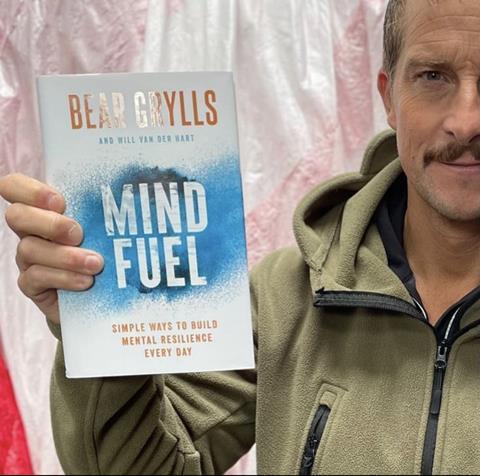Anxiety and depression increased by 25 per cent during Covid-19. In a stressful and turbulent world, Will Van Der Hart and Bear Grylls are praying that this World Mental Health Day, those who are struggling will ask for help

This year’s theme for World Mental Health Day (10 October) is unusually broad: ‘Make mental health and wellbeing for all a global priority’.
In previous years, the day has focussed on a specific mental health concern or demographic, but 2022’s approach reflects how unprecedented global events have made mental distress a universal concern.
According to the World Health Organisation, global prevalence of anxiety and depression increased by a massive 25 per cent during the first year of the Covid pandemic. Although the data is not yet available, there are clear indicators the global economic downturn will bring an additional wave of negative statistics which reflect the impacts of uncertainty, stress and deprivation.
Reaching the lost
Having worked in the emotional health space for the last 16 years through the Mind and Soul Foundation, I have seen how hard it is to reach new audiences with positive mental health messaging.
There has never been a greater need for us to pay attention to our own coping mechanisms
To a degree, as stigma has reduced and online content has become more readily available, those with an openness to exploring their mental health and wellbeing are already onboard. What concerns us are those who are resistant to engagement or disenfranchised by current resources. As the psychological impacts of our troubled world take hold, these are the people who will be most at risk - and the most unlikely to seek help when they need it.

When Bear Grylls and I set out to write Mind Fuel (Hodder & Stoughton), it was with a passion to connect with precisely these people. We are both moved by the fact that more than 5,200 lost their lives to suicide in 2021 and that there are three times as many male victims as female. We have both lost friends to suicide and wanted to do something to engage with the issue.
A new conversation
Many people - especially men - disengage from mental health material because they see it as either irrelevant, weak or woolly. Even within our churches, people can feel reluctant to talk about their emotional struggles, or admit that their mental health is not good. If you are in leadership, the problem is even worse.
Blending incredible stories of grit, courage and resilience with key emotional health principles seemed to offer an alternative. Bear is unbelievably inspirational (in real life as well as on screen) and as soon as we got started, I sensed we were onto something that could draw in that reticent audience.
People who are most at risk are also most unlikely to seek help when they need it
We use the principle of ‘mental fitness’ to describe the emotional health elements. It’s about saying: “How can I function emotionally in a healthy and positive way?” In the same way that our physical fitness creates an awareness of our bodies, mental fitness can help us develop a broader awareness of our thinking and processing. In a stressful and turbulent word, there has never been a greater need for us to pay attention to our own coping mechanisms.
This is a theme that is echoed throughout scripture. Paul regularly uses sporting metaphors to encourage Christians and, in Romans 12:2, we are reminded that with the Holy Spirit’s help, we can be transformed by the renewing of our minds.
If Mind Fuel provokes people to have conversations about mental health that wouldn’t otherwise happen, then we will have succeeded in our aim. I honestly don’t care if does well on the shelves; if it helps one person make a positive choice, or gives hope to someone who feels hopeless, that would be more than enough for me.



































1 Reader's comment